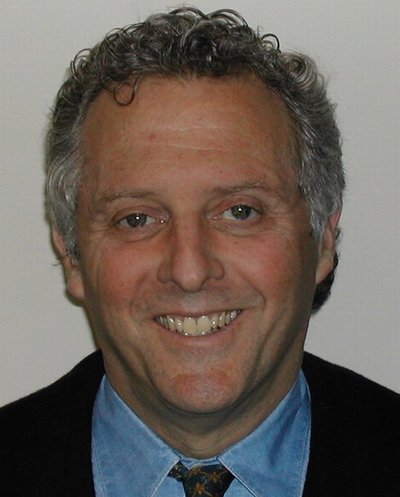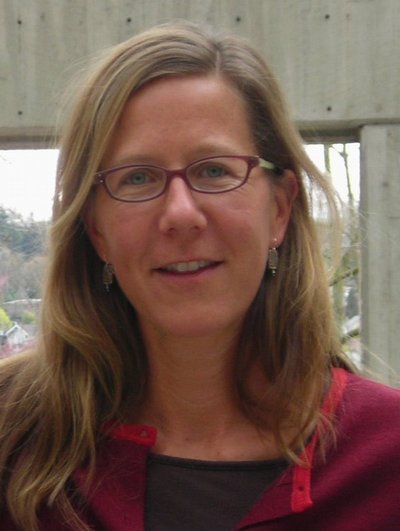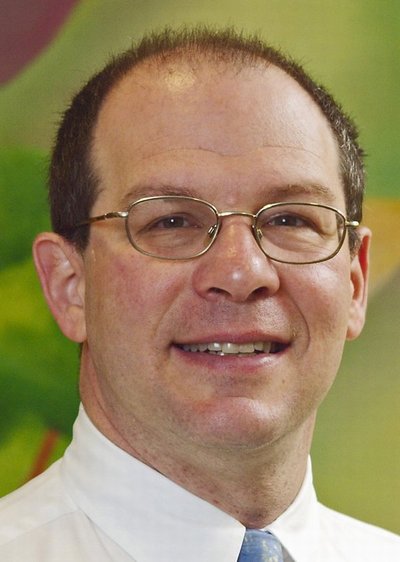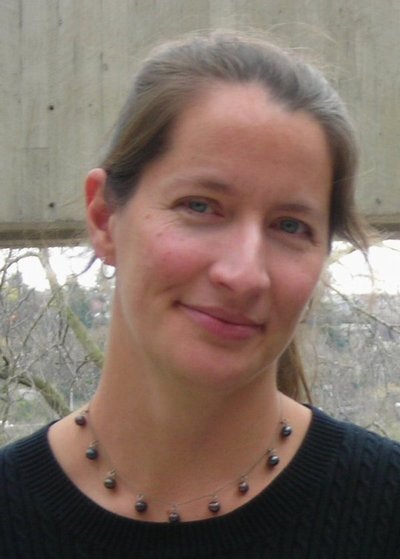May 8, 2008
Bioethicists tackle the hard questions
With health care becoming ever more complex, interest in bioethics is at an all-time high, and the UW is rapidly becoming the bioethics center for the Northwest — thanks in large part to the interdisciplinary collaboration of ethicists throughout the university.
“Ethics cuts across facilities, disciplines and programs — it’s one example of the UW’s cross-cutting enterprises that do not operate in a silo,” says Dr. Robert Pearlman, UW professor of medicine, director of the Ethics Program at VA Puget Sound Health Care System, and chief of Ethics Evaluation at the VA’s National Center for Ethics in Health Care.
Ethicists are involved in local efforts focusing on a range of issues including stem cell research, palliative care, genetic technologies, patient decision-making, emergency research, justice in health care, organizational ethics, and more.
“Ethics runs the gamut in types of issues, but with certain analytical skills, a systematic approach, and knowledge of relevant ethical standards, a wide range of questions can be addressed,” Pearlman says. “Ethics consultation can be used to address ethical challenges that arise in our university community, including our affiliated hospitals and educational programs.
“When ethics analysis is combined with quality improvement techniques, organizational factors that predispose to ethical challenges can be ameliorated. Ethics plays a crucial role in fostering an environment that supports ethical practices.” UW academics from various disciplines — genetics, education, pediatrics, medicine, nursing, public health, law, philosophy and others — come together on an ad hoc basis to tackle sticky ethical dilemmas that arise in the areas of health, science and society. Together they bring different and valuable perspectives to the issues.
“Ethics goes from bedside and clinical all the way down to the microscopic in the research dimension and from fetus to end of life,” Pearlman says.
Kelly Fryer-Edwards, UW associate professor of medical history and ethics, says ethicists help frame issues at every level of health care by asking questions. “We ask such questions as: ‘What are my responsibilities as a clinician…as a researcher…as a citizen in society? How can we reduce health disparities and achieve fair and just health care?” she says.
A case in point was the controversial treatment of a girl called “Ashley” or the “Pillow Angel” a couple of years ago. Doctors and parents decided to medically stunt the growth of a severely disabled girl to make it easier for her parents to manage her care.
“The case initiated at Children’s Hospital and one of the faculty, Dr. Doug Diekema, was the lead on that case and wrote an article analyzing the decision-making in the case,” says Fryer-Edwards. “Once that article garnered national attention, it became a question for everybody in our community.”
To examine the ethics of the case, the Treuman Katz Center for Pediatric Bioethics and the UW Center for Disability Studies hosted an educational ethics forum that included members of the medical community and general public.
“When we approach ethical issues in medicine, the bioethicist thinks about things that haven’t been thought about before and we try to examine the issues as broadly as possible and put them into perspective,” says Dr. Benjamin Wilfond, director of the Treuman Katz Center.
The Ashley case engaged a number of perspectives.
Fryer-Edwards is an educator, who prepares medical and research students for the ethical dilemmas that arise when conducting and reporting research.
“My department picked it up as an education issue because our medical students had questions about the case,” Fryer-Edwards says. “We looked at it as an opportunity to have a dialogue about specifics of the case and invited physicians who were important to the case to participate.”
The Department of Medical History and Ethics is the focal point for many of the bioethics activities at the UW and in the Northwest. The department has numerous adjunct and affiliate faculty members from various disciplines across campus who collaborate on bioethical issues as they arise.
Dr. Wylie Burke, professor and chair of the Department of Medical History and Ethics, says the UW is a leader in bioethics because of its openness and inclusiveness of a variety of perspectives.
“One of the strengths of the UW effort in bioethics is the diversity of disciplines and departments involved, including colleagues from many upper campus and health science departments,” Burke says. “The different perspectives help us to place complex problems in context and provide added value to each individual’s work.”
Sara Goering, UW assistant professor of philosophy and faculty member of the Program on Values in Society, works with the UW Disabilities Studies Program. She says the Ashley case and others are often catalysts for her group to look at the broader ethical perspectives of society’s values — equity and justice, autonomy, integrity and respect.
“The philosopher asks, ‘Why is it that when we think about health care, we tend to strip away the details of the people?’ We tend to view people as generally needing and wanting the same sort of things. In fact, what we have are groups that have specific kinds of identities, who say they want to be recognized for those things that make them different from the norm,” Goering says, using people with disabilities as an example.
“The normal view about disability is that it’s a terrible thing to have and it needs to be corrected with medical treatment. Yet, a lot of people with disabilities are saying, ‘We don’t need a cure, what we need is recognition, what we need is a little accommodation, and we need to be accepted. If we can participate the way we are, we’ll be quite happy, so please don’t try to change us.’
“These perspectives prompt us to ask questions about our theories of justice. What views and policies need to change so that we can accommodate these kinds of group differences? We’re interested in fitting some of these issues into a broader theoretical picture and less focused on the specifics of a particular case.”
In addition to working on specific clinical cases, and broad social issues, bioethicists are also working in areas of research.
“In research, we are providing guidance for faculty on the issues surrounding ghost authorship — on what’s appropriate in authorship. We help prepare scientists for translational research careers — all the ethical issues that come up when doing private research in this kind of competitive environment,” Fryer-Edwards says.
“We have a role in shaping the ethics for grants, which involves a training and consultation service.”
Frye Edwards notes that research ethicists have established an on-call research ethics service, similar to the clinical ethics model, in which scientists can call upon a trained corps of ethicists to consult on issues that arise during the course of their research.
The UW’s bioethics model is organized around classic “research, teaching and service,” Fryer-Edwards says.
“We offer service opportunities in terms of consultation; we’re all on committees that have ethics perspectives, we mentor junior faculty; we teach and do research. We’re all engaged in scholarship and research on research questions that have ethics as the focus.”
Wilfond says the UW’s approach to bioethics is unique. “I’ve been at a number of institutions and I’ve been very much struck by the exceptional collaborative nature here — it’s much more widespread than other places I’ve been. People really want to work together here. I’m very much struck by that openness.”
Fryer-Edwards says there’s growing national awareness of the UWas a bioethics center and resource in the Northwest.
“When I go to the national bioethics meetings, there’s a lot of interest in what’s going on in the Northwest,” Fryer-Edwards says, noting that unlike East Coast schools that often collaborate because of their proximity, the UW is one of few centers of bioethics in the Northwest. “It’s very exciting that we’ve been able to grow our own network of colleagues through collaboration.
“I think the more that we have been able to be at the bedside and at the bench offering perspective, reflection and the opportunity to talk about these issues, we’ve demonstrated the value of including ethics in so many conversations.”
__________________________________________________________________________________________________________________________
Bioethics resources
Medical History and Ethics
http://depts.washington.edu/mhedept/index.html
Dr. Wylie Burke, chair, wburke@u.washington.edu
Kelly Fryer-Edwards, Ph.D., edwards@u.washington.edu
Program on Values in Society
http://depts.washington.edu/ponvins
Michael Blake, Ph.D., director, miblake@u.washington.edu
Sara Goering, Ph.D., sgoering@u.washington.edu
Treuman Katz Center for Pediatric Bioethics
http://bioethics.seattlechildrens.org/
Dr. Benjamin Wilfond, director, bwilfond@u.washington.edu
VA Ethics Program
Dr. Robert Pearlman, director, Robert.Pearlman@va.gov






